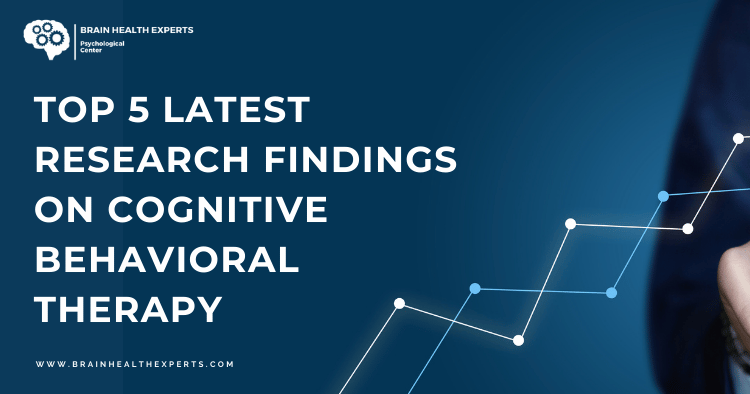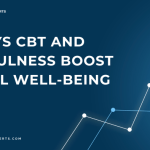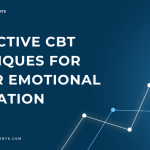Table of Contents
- Introduction to Cognitive Behavioral Therapy
- Finding 1: Effectiveness in Treating Anxiety Disorders
- Finding 2: Cognitive Behavioral Therapy for Depression
- Finding 3: Impact on PTSD Symptoms
- Finding 4: CBT and Chronic Pain Management
- Finding 5: Online CBT – A New Frontier
- Conclusion: The Future of CBT
- FAQs
Introduction to Cognitive Behavioral Therapy
Cognitive Behavioral Therapy (CBT) has grown in popularity as an effective psychological treatment for various mental health issues. It operates on the premise that thoughts, feelings, and behaviors are interconnected, and by changing negative thought patterns, we can alter our emotional states and behaviors. Recent research has provided new insights into the effectiveness of CBT, expanding its applications and solidifying its place in therapeutic practices. Let’s explore the top five latest research findings in this field!
“CBT is not just about changing thoughts; it’s about reshaping the very way we interact with our emotions and behaviors.”
Finding 1: Effectiveness in Treating Anxiety Disorders
Recent studies have reaffirmed that CBT is highly effective in treating anxiety disorders, including generalized anxiety disorder (GAD), social anxiety disorder, and panic disorder. A meta-analysis published in the Journal of Anxiety Disorders in 2023 found that CBT significantly reduces anxiety symptoms, often outperforming medication in the long term.
Key Insights:
- Long-term Efficacy: Follow-up studies indicate that individuals who undergo CBT tend to maintain their progress longer than those who rely on medication.
- Personalization: CBT can be tailored to suit individual needs, making it a versatile option for various anxiety manifestations.
For more techniques related to anxiety management, consider exploring 10 proven stress management techniques for daily relief.
“Personalization is key in therapy – what works for one may not work for another. CBT’s adaptability makes it a powerful tool.”
Finding 2: Cognitive Behavioral Therapy for Depression
CBT remains one of the most researched therapies for depression. A comprehensive review in Psychological Bulletin (2023) highlights that CBT not only alleviates symptoms but also addresses underlying cognitive distortions that contribute to the disorder.
Key Insights:
- Structured Approach: CBT’s structured nature makes it easier for patients to track progress and identify negative thought patterns.
- Relapse Prevention: Studies show that CBT can reduce the risk of relapse in patients who have previously experienced depression.
Learn more about effective strategies by checking out 10 tips to overcome negative thought patterns today.
“Addressing cognitive distortions is crucial; it’s like cleaning the lens through which we view the world.”
Finding 3: Impact on PTSD Symptoms
The application of CBT in treating Post-Traumatic Stress Disorder (PTSD) has shown remarkable results. Research published in the American Journal of Psychiatry (2023) indicates that trauma-focused CBT is particularly effective in reducing PTSD symptoms in veterans and survivors of abuse.
Key Insights:
- Trauma Processing: CBT helps patients process traumatic memories in a safe environment, reducing their emotional impact.
- Coping Strategies: Patients learn coping strategies that can be applied in their daily lives, improving overall resilience.
For additional insights on resilience, see 10 ways positive thinking boosts resilience in tough times.
“The journey through trauma is challenging, but CBT provides a roadmap for healing and resilience.”
Finding 4: CBT and Chronic Pain Management
Emerging research indicates that CBT can be an effective treatment for chronic pain. A 2023 study in Pain Medicine demonstrated that patients who underwent CBT reported lower pain levels and improved functionality.
Key Insights:
- Mind-Body Connection: CBT teaches about the interplay between thoughts, emotions, and physical sensations, helping manage pain more effectively.
- Reduced Medication Dependency: Patients may experience a reduction in the need for pain medications, leading to fewer side effects and improved quality of life.
Explore more on managing stress with 10 effective stress reduction techniques for students.
“Understanding the mind-body connection is crucial in pain management; CBT empowers patients to take control.”
Finding 5: Online CBT – A New Frontier
With the rise of telehealth, online CBT has gained traction. Research indicates that virtual platforms for CBT can be as effective as in-person sessions. A study published in The Lancet Psychiatry in 2023 found that individuals who participated in online CBT reported significant improvements in mental health.
Key Insights:
- Accessibility: Online CBT makes therapy accessible for those in remote areas or those with mobility issues.
- Cost-Effectiveness: Patients can save on travel and associated costs, making mental health care more affordable.
For more options on online resources, refer to top 10 online CBT resources for effective mental health support.
“Online platforms are breaking down barriers to mental health care, making support available to all.”
Conclusion: The Future of CBT
As research continues to unfold, CBT stands out as a versatile and effective treatment for a variety of mental health issues. With its adaptability to both in-person and online formats, CBT is well-poised to meet the growing demand for effective psychological treatments. The latest findings not only reinforce its efficacy but also highlight its evolving role in mental health care.
FAQs
Q: How long does CBT typically last?
A: CBT sessions usually last between 5 to 20 sessions, depending on the individual’s needs and the issue being addressed.
Q: Is CBT suitable for everyone?
A: While CBT is effective for many, it may not be suitable for individuals with certain severe mental health issues. Always consult a qualified mental health professional.
Q: Can I do CBT on my own?
A: Self-help resources and online CBT programs are available, but working with a trained therapist can provide better outcomes, especially for complex issues.
Q: How does online CBT compare to traditional therapy?
A: Studies suggest that online CBT can be as effective as in-person therapy, providing flexibility and accessibility. However, the choice depends on personal preference and specific circumstances.
For additional resources on mental health therapies, visit the American Psychological Association.
This blog post provides an overview of the latest research findings on Cognitive Behavioral Therapy, offering insight into its effectiveness across various mental health conditions. By staying informed, individuals can make empowered decisions about their mental health treatment options. Also, consider checking out 10 powerful techniques to cultivate a positive mindset for additional strategies that complement CBT.





